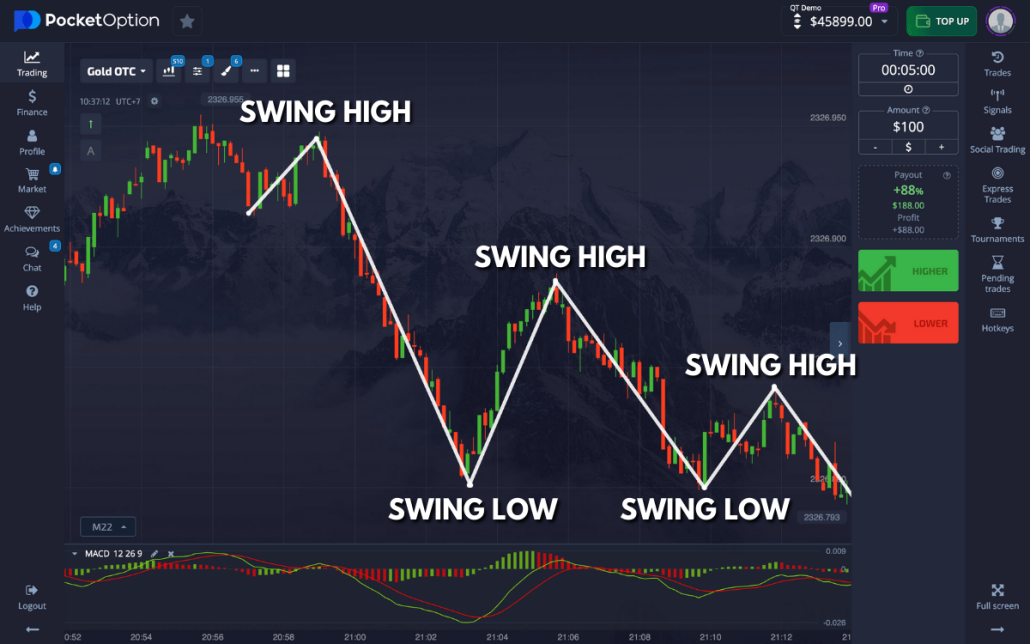08.22

When it comes to trading on platforms like pocket option taxes Pocket Option, many traders often overlook an essential aspect of their financial activities: taxes. Understanding how taxes apply to your trading activities is crucial for maintaining compliance and optimizing your trading strategy. In this article, we will explore what pocket option taxes are, the implications they carry, and how you can manage your taxes effectively as a trader.
What Are Pocket Option Taxes?
Pocket Option is an online trading platform that allows users to trade various financial instruments, including currencies, commodities, and indices through binary options. When trading, any profits you make are typically considered taxable income, which means you may have to report your earnings to your country’s tax authorities. The specifics of pocket option taxes can vary widely based on your country of residence, as different nations have differing tax laws and regulations regarding financial trading.
Understanding Tax Obligations for Traders
As a trader using Pocket Option, you must understand your tax obligations. Generally, profit from trading is subject to capital gains tax, which varies depending on how long you’ve held your trades. In the case of short-term trading, which is common in a platform like Pocket Option, these gains might be taxed as ordinary income. Alternatively, long-term holdings (typically over one year) may be subject to lower long-term capital gains tax rates.
Let’s break down some essential tax considerations for traders:
- Record Keeping: Accurate record-keeping is vital for determining your taxable income. You should maintain comprehensive records of all your transactions, including profit and loss statements, deposit/withdrawal history, and any trading fees.
- Types of Income: Understand the difference between capital gains and ordinary income. Short-term trades generally fall into the latter category.
- Tax Deductions: Some expenses related to trading, such as trading fees and equipment used for trading, may be deductible, depending on your local tax laws.
Country-Specific Tax Regulations

Tax rules can differ significantly around the world, and it’s important to know the regulations specific to your country. Here are some examples:
- United States: In the U.S., profits from trading are considered income and are taxed accordingly. Traders must report their profits on their annual tax returns, using a Form 8949 to report capital gains and losses.
- United Kingdom: UK residents must adhere to Capital Gains Tax (CGT) regulations. There is an annual tax-free allowance, and anything above this amount is subject to CGT based on your income tax band.
- Canada: In Canada, 50% of your capital gains are taxable. It’s imperative to differentiate between capital gains and income for reporting purposes.
Tax Strategies for Traders
Managing taxes efficiently requires strategic planning. Here are a few strategies that can help:
- Tax-Loss Harvesting: This involves selling losing positions to offset your taxable gains, potentially reducing your overall tax burden.
- Holding Period: If you can afford to hold trades longer than a year, consider this strategy to benefit from lower long-term capital gains rates.
- Consulting a Tax Professional: Given the complexities of tax laws, seeking advice from a tax professional can help you navigate the specifics related to your trading activities.
The Importance of Compliance
Staying compliant with tax regulations is critical for any trader. Failing to report your trading income can lead to fines and legal repercussions. By understanding pocket option taxes and ensuring accurate reporting, you protect yourself from potential pitfalls. Additionally, compliance enhances your credibility and opens up opportunities for future investments.
Conclusion
Trading on platforms like Pocket Option presents exciting opportunities, but it also involves responsibilities, particularly regarding taxes. Understanding how pocket option taxes work, being aware of your tax obligations, and implementing tax strategies can significantly impact your financial outcomes. By educating yourself and possibly consulting professionals, you can navigate the tax landscape effectively and focus on what you do best—trading.



















Aucun commentaire.
Ajoutez votre commentaire